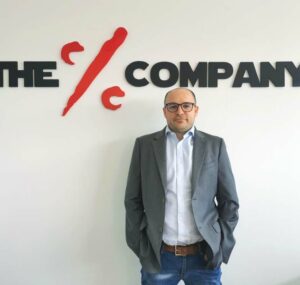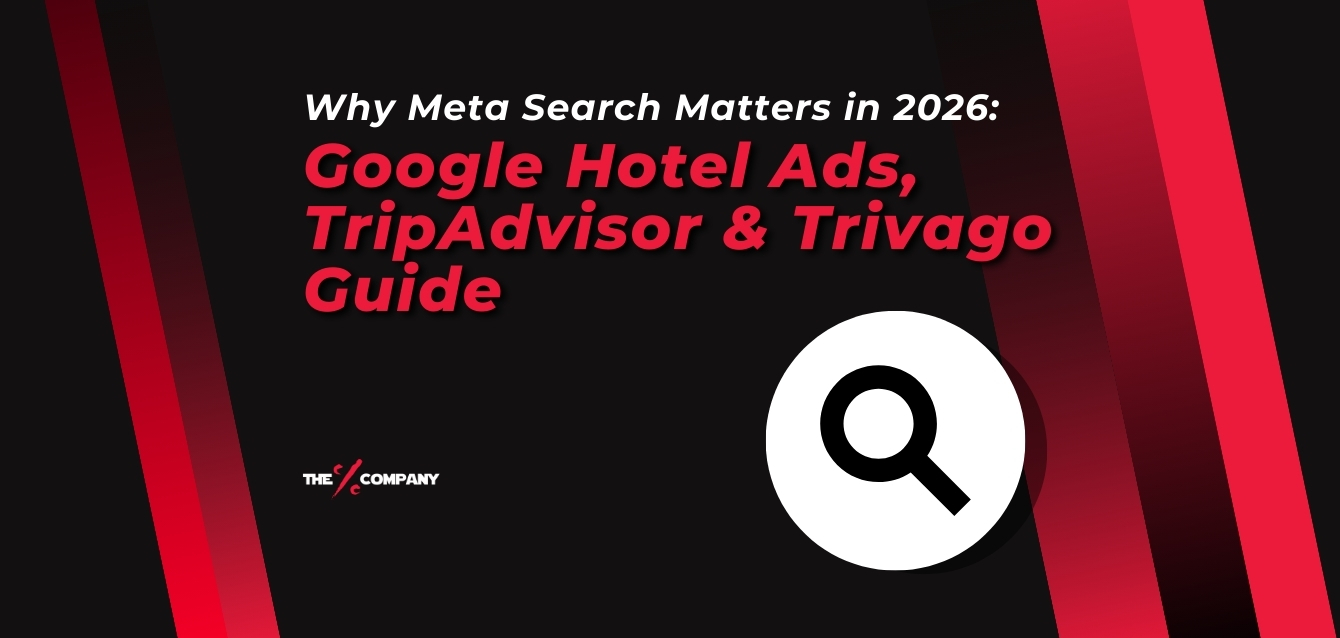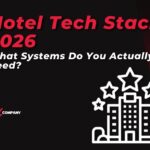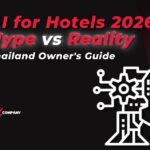For years, the conversation around “direct bookings” has centred on Google, SEO, PPC, retargeting, and loyalty programs (all of which The Percentage Company provide). But in 2026, one channel continues to stand out as both massively under-utilised and disproportionately profitable for hotels, serviced apartments and hostels:
Meta search. Specifically: Google Hotel Ads, TripAdvisor, and Trivago.
Meta search is no longer “nice to have.” It has evolved into the #1 battleground for last-click conversion, where OTAs compete aggressively for your brand name, and where you, with the right setup, can win back control.
This guide walks through why meta search matters more than ever in 2026, the true costs, how the major channels work, how to set them up, how to track revenue properly, and why direct-booking meta search campaigns consistently outperform OTA bookings on profit and long-term value.
1. What Meta Search Actually Is (And Why It’s So Powerful in 2026)
Meta search engines don’t operate like OTAs. They don’t sell rooms directly. Instead, they:
- aggregate your rates from multiple sources (direct website, OTA channels, wholesalers),
- display them side-by-side, and
- send the booking click to the provider offering the best combination of price, availability, and trust.
In other words: meta search is demand capture at the moment of highest intent.
A guest typing your exact hotel name into Google, TripAdvisor, or Trivago is already 85–95% decided on staying with you. This is not awareness. This is not “maybe-someday” comparison shopping. This is bottom-of-the-funnel conversion.
Why this matters now:
- OTA commissions continue to increase due to new “value-added” service fees.
- Guests have grown more price-sensitive post-COVID and actively compare prices.
- Meta search listings appear above organic results and PPC ads.
- Google has shifted more traffic into its Hotel Pack and expanded “Book on Google.”
- OTAs buy your brand aggressively and often show lower rates (tax-inclusive or wholesale leakage).
Meta search is the one place where you can take back visibility, take back pricing clarity, and take back conversions, without playing the OTA bidding war.
2. The Big Three: How Google, TripAdvisor & Trivago Work in 2026
Each major meta search channel works slightly differently. Here’s what matters:
Google Hotel Ads (GHA)
Google Hotel Ads is now the dominant meta search channel globally. It powers:
- Google Search hotel modules
- Google Maps hotel listings
- Hotel booking panels
- Hotel knowledge panels
- Property-level “Book direct” calls to action
Why it matters:
More than 70% of brand-intent hotel searches now route traffic through a Google hotel module. That means even if a guest types your name, Google still pushes them through a hotel comparison view where OTAs bid on your brand terms. If you’re not present, OTAs hijack the booking, guaranteed.
GHA supports three bidding models:
- Commission per Stay (CPS) – percentage commission paid only after actual stay (very popular in Asia).
- Commission per Conversion (CPCV) – commission per conversion (less common in 2026).
- Cost Per Click (CPC) – traditional bidding with smart algorithms that optimise for ROAS.
Smart bidding is now exceptionally accurate thanks to Google’s machine learning and property-level intent signals.
TripAdvisor
TripAdvisor continues to be a trust-driven channel, guests read reviews first, then compare prices. It is valuable for:
- High-intent reputation-driven travellers
- Long-stay and premium bookings
- Destination markets with high Western traffic
TripAdvisor allows:
- Meta search CPC campaigns
- TripConnect (direct booking CPC)
- Cost-per-acquisition (CPA) programs for some markets
TripAdvisor’s audience is smaller than Google’s but highly engaged, especially for boutique and luxury hotels.
Trivago
Trivago remains strong in Europe, especially Germany, the UK, and Nordic markets. It is:
- Price-focused
- OTA-heavy
- Excellent for brand protection in competitive urban destinations
Trivago operates on a CPC model and is extremely sensitive to pricing discrepancies—if OTAs undercut you, Trivago amplifies it.
3. Costs: How Much Meta Search Really Costs in 2026
Let’s break down what you actually pay.
Google Hotel Ads
- Standard listings are free if you use The Percentage Company Booking engine
- CPC: You bid per click
- CPS: 10–18% commissions typical (depends on market & provider)
- CPC Smart Bidding: Google optimises bids automatically, usually achieving 5–15x ROAS
Important: CPC often ends up cheaper than CPS by 20–40% if your booking engine converts well.
TripAdvisor
- CPC: $0.50–$3 per click depending on market & competition
- CPA: 12–18% (limited availability)
Trivago
- CPC: $0.25–$1.80 depending on competition
- CPA/commission: Not widely available; mostly discontinued
What properties get wrong about cost
Hotels often compare CPC cost to OTA commission and assume the OTA is “safer.” This is flawed logic. With meta search:
- You pay once.
- OTAs take commission every time and also keep the guest data.
- Meta search traffic has 2–5× higher repeat booking probability.
- Direct guests have 20–40% higher lifetime value.
4. Benefits: Why Meta Search Campaigns Outperform OTAs
Meta search is the only channel where:
- You control the price
- You control the guest experience
- You control the upsells
- You control the data
- You own the relationship
- You avoid OTA ranking penalties
- You protect your brand from OTA bidding
But beyond these standard talking points, there are deeper advantages.
Benefit #1: Meta search converts better than all other paid channels
Guests coming from meta search already know:
- Your name
- Your location
- Your reputation
- Your availability
- Your approximate rate
This makes them the highest-intent marketing audience on the internet.
Average conversion rates:
- Google Ads (generic) = 1–3%
- Social campaigns = 0.4–1%
- OTA landing pages = 2–5%
- Meta search direct = 6–18% (best case 20%+)
When combined with a fast, mobile-optimised booking engine (like The Percentage App), conversion can be exceptional.
Benefit #2: Meta search reduces OTA dependency (and increases ADR)
Direct bookings consistently have:
- Lower cancellation rates
- Higher ADR due to no OTA discounting pressure
- More upsells during and after checkout
- More cross-selling (spa, F&B, tours, transportation)
- Subscription to your email/CRM automations
- Better conversion on remarketing flows
OTAs fight aggressively for guests on price and push discount-based ranking tools (Genius, Preferred Partner, Visibility Booster). These erode margins.
Meta search gives you:
- Rate parity visibility
- Control over offers
- Control over brand presence
When you are visible on meta search, OTAs lose their “brand hijack” advantage.
Benefit #3: Direct guests are 2–5× more valuable long-term
Direct bookers:
- Rebook with you directly
- Respond to member rates
- Convert better into long-stay offers
- Are more likely to upgrade or add services
- Are more loyal
- Leave better reviews (because communication is cleaner)
OTAs keep your guest data and control the relationship. Meta search gives it back to you.
5. Setup: How to Connect Meta Search in 2026 (Step-by-Step)
Most properties connect through a certified connectivity partner, a booking engine or channel manager that integrates with Google/TripAdvisor/Trivago.
With The Percentage App (fastest setup):
For hotels using The Percentage App booking platform:
- Enable meta search in your dashboard
- Auto-sync rates, availability, promotions, restrictions
- Start receiving live traffic within 24–72 hours
The entire process is typically completed in under 30 minutes and live once approved by Google.
6. Tracking: How to Measure Profit, Not Just Revenue
Tracking is the most misunderstood part of meta search.
Most hotels rely on:
- Google Analytics (but often misconfigured)
- OTA “reporting” (which hides margins)
- Channel manager numbers (which don’t reveal true acquisition cost)
A proper tracking setup includes:
1. Revenue tracking per channel –
Actual revenue received from direct meta search vs OTAs vs website vs ads.
2. Cost tracking per click or per stay
Not just “spend”—actual profit left after media cost.
3. Attribution modelling
Meta search is almost always the last click, but you should also see:
- Organic → meta → direct
- Social → remarketing → meta → direct
- Google Ads → meta → direct
This avoids double counting.
4. Cancellation tracking
Direct bookings have half the cancellation rate of OTA bookings.
That must be considered in ROAS calculations.
5. CRM lifetime value tracking
Direct bookings add to your CRM, feeding:
- upsells
- pre-arrival emails
- in-stay automations
- loyalty programs
- rebooking campaigns
This is invisible in OTA bookings.
7. Why Direct Meta Search Bookings Outperform OTAs on Profitability
Let’s break down real numbers.
Scenario: OTA Booking
- Room rate: 4,000 THB per night
- Stay length: 3 nights
- Revenue: 12,000 THB
- OTA commission: 18–22% (plus payment fees & program fees)
Net revenue: 9,300–9,800 THB
Plus:
- No guest email
- No marketing permissions
- No upsell revenue
- No loyalty enrolment
- High chance of cancellation
- Discount pressure for OTA ranking
Scenario: Meta Search Direct Booking
- Same room rate: 4,000 THB
- Same stay length: 3 nights
- Revenue: 12,000 THB
- Meta search cost:
- CPC: usually 200–800 THB per booking (Asian markets)
- CPS: 10–15% (1200–1800 THB)
Net revenue: 11,200–11,800 THB (CPC)
Net revenue: 10,200–10,800 THB (CPS)
Plus:
- Full guest data
- Full upsell opportunity (tours, transfers, spa)
- Pre-arrival and cross-sell automations
- CRM & loyalty enrolment
- ROI compounds over time
- Higher rebooking rates
- No discount pressure
Even in the worst case (CPS 15%), direct meta search puts 1,000–2,000 THB more per booking into your bank, not into an OTA’s pocket.
8. How to Optimise Meta Search Performance in 2026
Here are the exact actions that drive the biggest improvements.
1. Fix rate parity issues (90% of hotels suffer from this)
OTAs often show lower rates because of:
- tax differences
- wholesale leakage
- mobile discounts
- loyalty programs
- opaque pricing tricks
Fixing parity increases direct meta conversion immediately.
2. Improve your booking engine speed & UX
Meta search users are high intent, but they won’t wait for slow engines. The Percentage App booking engine loads quickly, dramatically improving ROAS.
3. Use Google’s Smart Bidding
Let Google optimize clicks for highest conversion probability. Manual CPC is nearly always less effective in 2026.
4. Use photos optimised for Google & TripAdvisor
High-resolution images increase click-through rates by 20–40%.
5. Create strong direct-booking incentives
Examples:
- 5% lower direct rate
- Free breakfast
- Free room upgrade
- Late checkout
- Complimentary airport transfer
- Spa or F&B credit
These work extremely well when displayed in the meta search “direct booker benefits” fields.
9. The Future: Meta Search Will Only Get More Dominant (2025–2030)
Looking forward, several trends make meta search more important, not less:
1. Google is reducing organic visibility for hotels
More modules → more hotel packs → more price comparisons → more pay-to-play.
2. OTA commissions will keep increasing
OTAs are public companies. Revenue pressure means one thing: higher fees.
3. Consumers increasingly compare prices
Post-pandemic inflation makes travellers more price-sensitive.
4. AI assistants rely heavily on structured rate data
Meta search feeds the data pipelines for:
- Google AI Overviews
- TripAdvisor Co-Pilot
- Future booking AI tools
If you’re not visible on meta search feeds, AI assistants won’t show your direct channel.
5. Meta search now impacts brand trust
If your direct price looks worse than OTAs, guests trust you less.
10. Conclusion: Meta Search Is Now Mandatory for Hotels in 2026
Meta search is no longer experimental, optional, or “advanced marketing.” It’s the profit centre of your direct-booking strategy. When done correctly, it:
- reduces OTA dependency
- increases ADR
- increases profit
- gives you control of your data
- strengthens your brand
- funnels high-intent guests directly to your booking engine
- builds long-term guest relationships
And with tools like The Percentage App, the setup, management, optimisation, and tracking are fully automated.
OTAs will always fight to take your guests. Meta search is one of the ways that you can start taking them back!

Written By: Edward Kennedy
Co-Founder & Director at The Percentage Company. I started working on websites in 1997 and have been a full-time techie since 2001. I’m committed to leveraging the latest technologies and digital marketing techniques to drive efficiency & improve online sales for our hotel clients. I have a 20+ year track record of success in growing independent hospitality & real estate brands.






